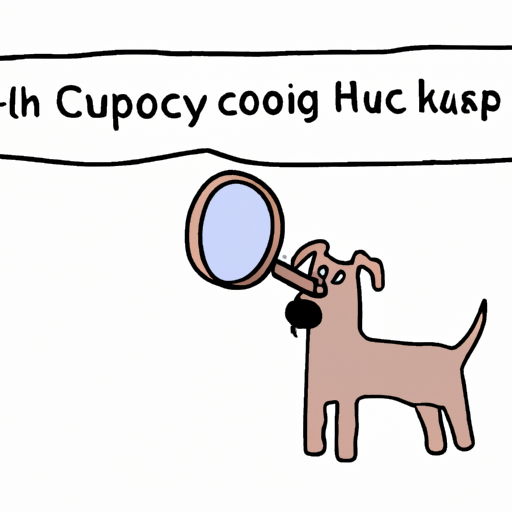Understanding Hiccups in Dogs
Just as you experience hiccups, your furry friend may do so too. But what exactly are hiccups? They are involuntary contractions or spasms of the diaphragm, the muscle that separates your dog’s chest from its abdomen. These spasms cause a sudden rush of air into the lungs, resulting in the ‘hic’ sound you hear.
Common Causes of Hiccups in Dogs
There are multiple reasons why your dog might get hiccups, but here are the most common causes:
- Rapid Eating or Drinking: If your dog gulps down its food or water too quickly, it might swallow extra air. This excess air can cause the diaphragm to spasm, leading to hiccups.
- Excitement or Stress: Emotional triggers like excitement or stress can also cause hiccups in dogs. If your dog gets overly excited or stressed, it can start hyperventilating, which might bring on a bout of hiccups.
- Cold Temperatures: Just like in humans, cold temperatures can also cause hiccups in dogs. If your dog is suddenly exposed to a cold environment, it might start hiccuping.
- Certain Medications: Some medications can also cause hiccups in dogs. If you’ve recently started your dog on a new medication and notice hiccups, you might want to consult your vet.
How to Stop Your Dog’s Hiccups
Here are some tips on how you can help your dog when it has hiccups:
- Change its eating habits: Encourage your dog to eat slowly by using slow feeder bowls or puzzle feeders. These tools make it harder for your dog to gulp down its food, reducing the chance of getting hiccups.
- Keep it calm: Try to reduce your dog’s stress or excitement levels. This could mean avoiding certain triggers, like loud noises or unfamiliar environments. A calm and peaceful environment can help prevent hiccups.
- Keep it warm: If your dog gets hiccups when exposed to cold temperatures, ensure it is kept warm and cozy. Use a doggy sweater or a blanket if needed.
When to Seek Vet Help
Hiccups in dogs are generally harmless and usually go away on their own. However, if your dog’s hiccups persist for more than a few hours or if they are accompanied by other symptoms like lethargy, lack of appetite, or difficulty breathing, you should seek veterinary help immediately.
| Symptoms to watch for | Possible causes |
|---|---|
| Persistent hiccups | Might indicate a respiratory issue |
| Hiccups with lethargy | Could be a symptom of illness |
| Hiccups with loss of appetite | Might suggest a gastrointestinal problem |
FAQ
Q: Can dogs get hiccups like humans?
A: Yes, dogs can get hiccups just like humans. It’s a completely natural occurrence and is generally nothing to worry about.
Q: How long do dog hiccups last?
A: Dog hiccups usually last only a few minutes. If they persist for more than a few hours, it’s best to consult a vet.
Q: Can puppies get hiccups?
A: Yes, puppies can get hiccups. In fact, they are more prone to hiccups than adult dogs because they tend to eat and drink rapidly.
Q: Are dog hiccups a sign of illness?
A: Not usually. However, if the hiccups persist or are accompanied by other symptoms, it’s advisable to seek veterinary help.
Remember, as a caregiver, your pet relies on you to maintain its health and comfort. Understanding hiccups and when they might be a cause for concern is an important part of that responsibility.



